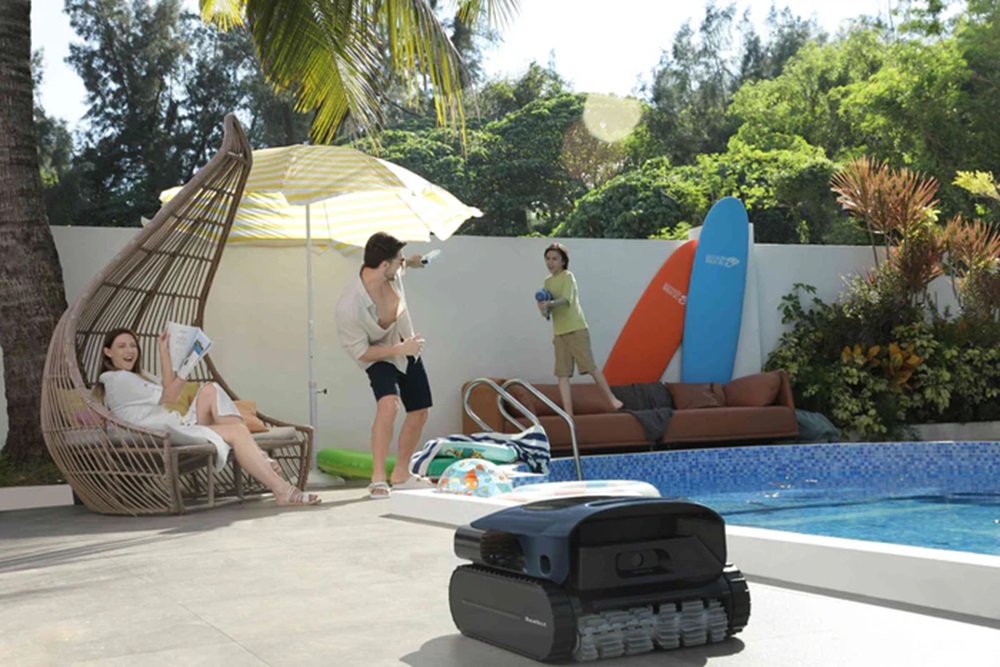The needs and requirements of swimming pools differ significantly between residential and commercial installations. Grasping these distinctions is essential for those engaged in the construction process of swimming pools. We are exploring the key distinctions between residential and commercial pools, focusing on design, usage, maintenance, and regulations, including the role of technologies like a robotic pool cleaner.
Pool Design and Size Variations
The primary distinction between residential and commercial pools is their size and design. Residential pools are typically designed for private use and are, therefore, smaller and can be customized according to individual preferences and backyard sizes. They often feature aesthetic enhancements such as waterfalls, colorful lighting, and irregular shapes that complement personal style and home architecture.
On the other hand, commercial pools are larger and designed to accommodate the public. These pools must withstand heavy usage and are often built in standard shapes, like rectangles, which are optimal for lap swimming and large crowds. Commercial pools may also include features like lanes for competitive swimming and diving boards and increased accessibility to serve diverse users.
Usage and Accessibility
Usage patterns also distinguish residential from commercial pools. Residential pools are typically used by a few people, mainly family and friends, affecting design and maintenance strategies. In contrast, commercial pools see a much higher frequency of use, requiring robust systems to handle the wear and tear of continuous operation.
Moreover, commercial pools must adhere to strict accessibility standards under laws like the Americans with Disabilities Act (ADA). This includes providing accessible entry and exit points, which might involve ramps, lifts, or zero-depth entries. Residential pools are generally exempt from these stringent requirements unless they are part of a community or shared among multiple households.
Maintenance and Health Regulations
Maintenance requirements are another significant aspect where residential and commercial pools differ. Commercial pools require intensive maintenance schedules to ensure water quality and safety for many users. This involves regular checks and balancing chemical levels, frequent cleaning, and heavy-duty filtration systems.
Here, integrating a pool robot can be highly beneficial, providing automated and efficient cleaning, which is crucial for maintaining large commercial pools. With advanced sensors and algorithms, these robotic pool cleaners precisely navigate pool surfaces, capturing debris and scrubbing away dirt and algae. Their autonomous operation reduces the need for manual labor and ensures thorough cleaning.
In addition to more rigorous maintenance, commercial pools are subject to stricter health regulations and inspections by local health departments. These pools must maintain logs of chemical levels, temperature, and pool usage to ensure compliance with public health standards. Residential pool owners, while still needing to keep clean and safe water, have more flexibility with fewer formal requirements.
Cost and Investment
Investing in a commercial pool is considerably higher in terms of both upfront investments and recurring expenditures. The construction of commercial pools involves larger scales, more durable materials, and systems designed for extensive use, all of which contribute to higher costs. Operational expenses, such as energy for heating and pumping, maintenance staff, and water treatment, are more substantial than residential pools.
Conclusion
The differences between residential and commercial pools are vast, encompassing design, usage, maintenance, and regulatory compliance. Understanding these distinctions is vital for potential pool owners or operators to ensure that the pool meets its intended use and operates efficiently and safely. Whether for private relaxation or public enjoyment, the type of pool installed has significant implications for cost, design, and operational strategy, making informed choices essential for success.
FAQs About Differences Between Residential and Commercial Pools
☆ What are the latest innovations in swimming pool technology?
Recent innovations include saltwater chlorination systems, UV sterilization, and variable speed pumps that offer energy efficiency and enhanced water quality. Advanced filtration systems and AI-driven pool management software are becoming popular for optimizing operations and maintenance for commercial pools.
☆ How does one handle safety and liability concerns with commercial pools?
Handling safety involves strict adherence to regulatory standards, thorough staff training in emergency procedures, and regular safety audits. Liability concerns can be mitigated by maintaining rigorous documentation of maintenance practices and incident logs and ensuring all safety equipment is up-to-date and accessible.
☆ Can landscaping enhance pool areas for both residential and commercial pools?
Landscaping can enhance pool areas by providing natural shading, privacy barriers, and aesthetic value. In commercial settings, landscaping can also help direct foot traffic and improve safety by delineating different areas of the pool complex.
☆ What are the challenges of maintaining water quality in heavily used commercial pools?
Challenges include managing high levels of contaminants due to heavy usage, maintaining balanced chemical levels, and ensuring the filtration system is robust and frequently checked. Technologies like real-time water quality monitoring sensors can help maintain optimal conditions.
☆ Are there specific training requirements for commercial pool staff?
Yes, staff often require training in life-saving techniques, first aid, pool equipment operation, and customer service. Regular updates and refresher training on the latest safety protocols are vital for keeping staff prepared and compliant with regulations.
⚠ Article Disclaimer
The above article is sponsored content any opinions expressed in this article are those of the author and not necessarily reflect the views of CTN News









